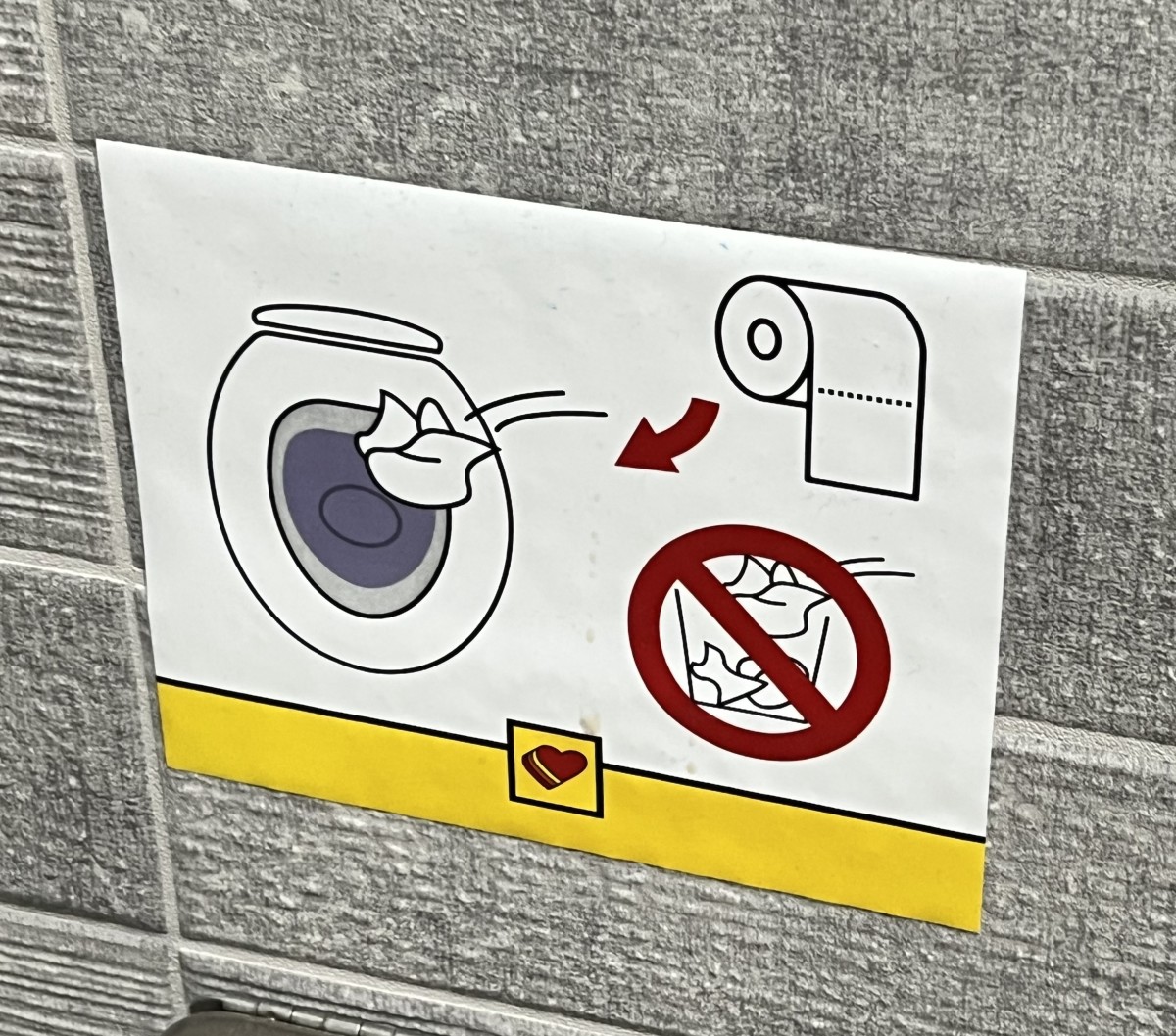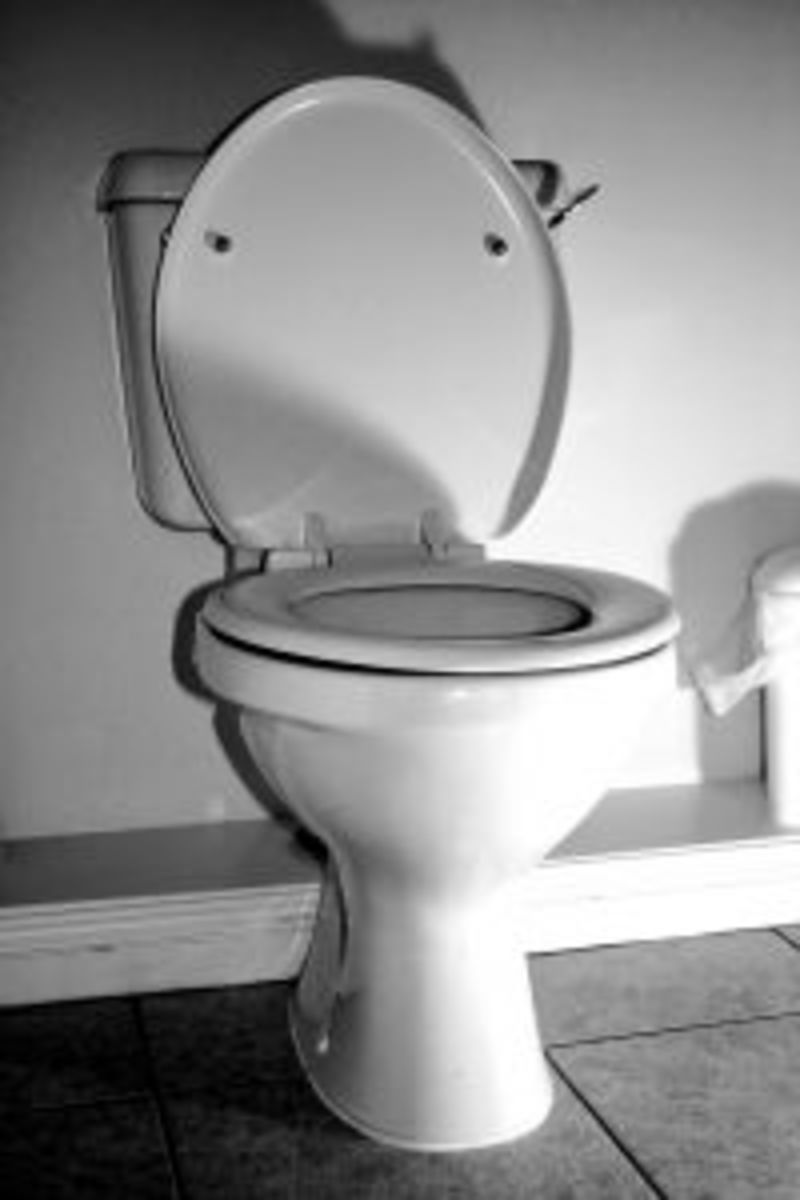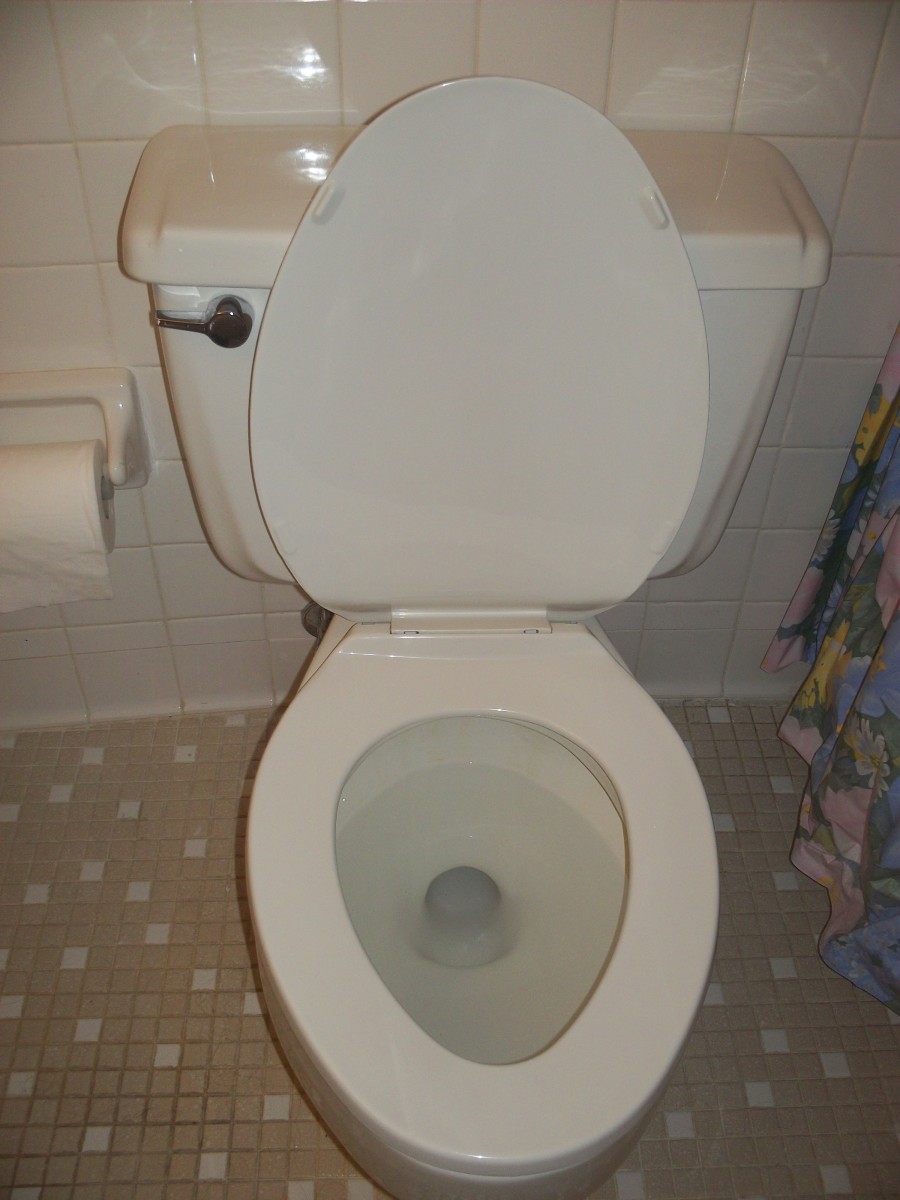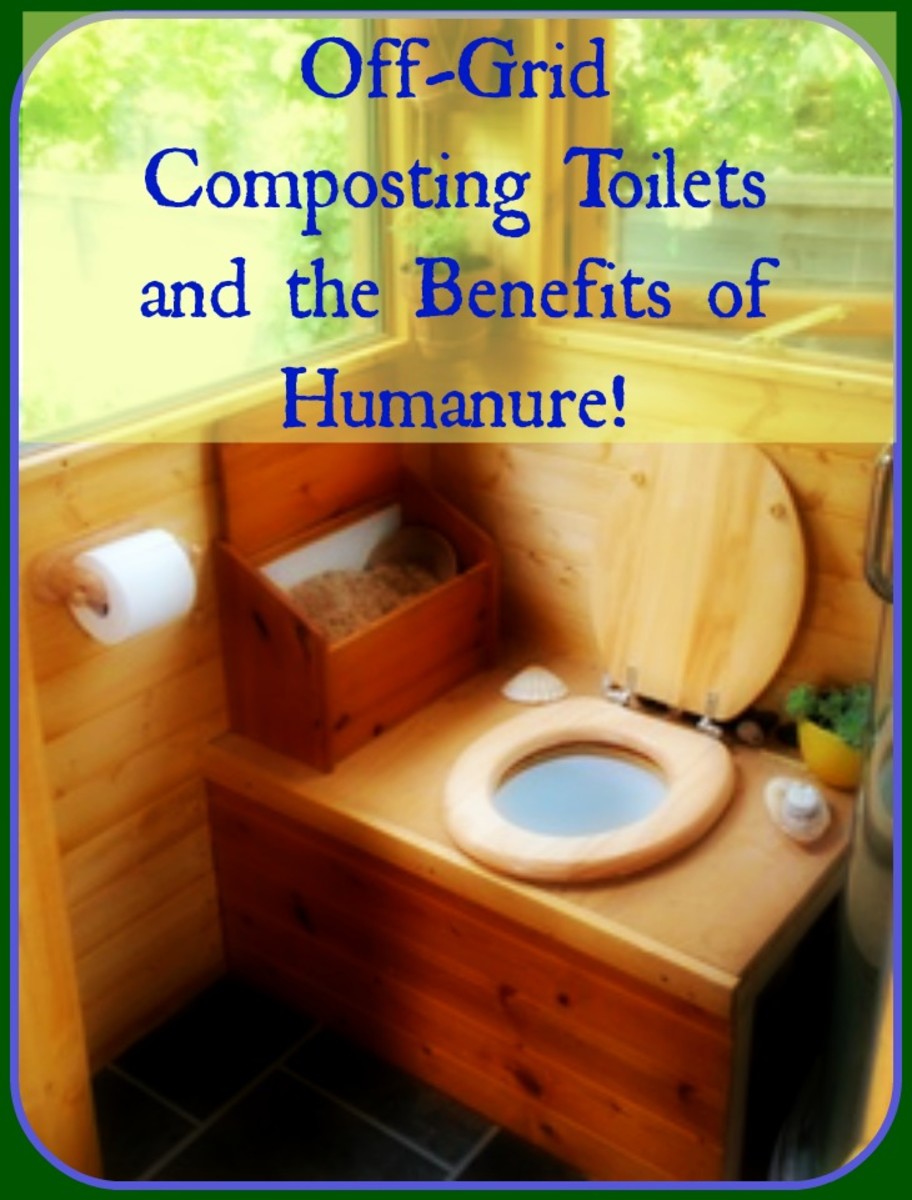Covid-19 Bonus: The Dreaded "Toilet Plume"
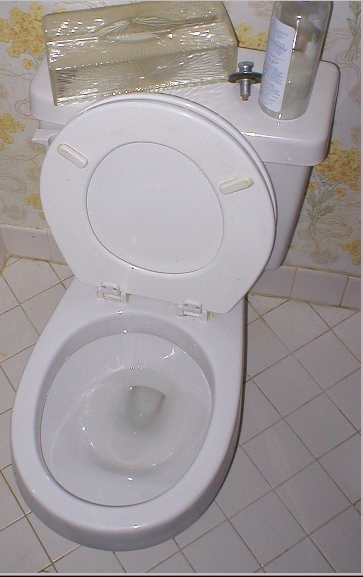
As if Covid-19 hadn't asked enough of us—stay apart, wash our hands until the skin falls off, stay home to work if possible, keep the kids home from school—now there's yet another danger: personal excretions.
It was obvious from the start, at least in the UK, that public toilets were a problem; the public/municipal ones were ordered closed, and the ones people usually used when away from home—those in coffee shops, pubs and restaurants, or libraries, or department stores, or even the dentist's office—were unavailable because the venues were also closed.
This led, unfortunately, to reports of defecation by humans on the beaches of Cornwall on a sunny holiday weekend. It is difficult to close Cornish beaches—the place is totally ringed by beaches—but the loos are easier to police, and they were closed.
Whether it was the public poo problem that caused medical scientists to look at the contagion issued of toilets or not, they've been looked at now. The result? We must now beware the deadly “toilet plume.”
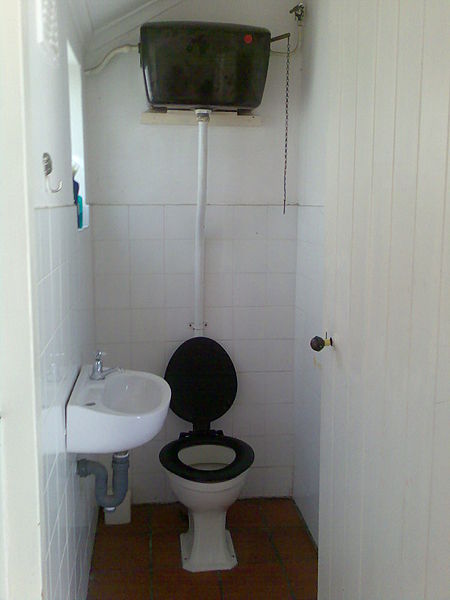
To Touch or Not to Touch
A great many of us grew up not shutting the lid on the toilet before we flushed at home because we thought the lid would be germy and didn't want to touch it. The fact that we would wash our hands aftrer using the toilet didn't seem to compute.
Then about 20 years ago, a few scientists began to warn about droplets created by a powerful flush, coating everything in the room with a mist of potential disease. Yipes! Time to close the lid at last as a matter of course, and wash the hands.
But what of toilets at highway rest stops? Huge banks of cublicles containing a toilet WITHOUT A LID. It did worry me, although I had got over lining the seats with paper before I sat, or, like most women, not sitting when I could hover. Still, the loud whoosh of those toilets convinced me they were, in fact, germ geysers.
After I used one, I'd make sure my clothes were in order, grab my purse off the hook on the door, get poised to scram as fast as possible, and then hit the flushing mechanism hard and fast, and escape.
I liked the flushing mechanisms where you just waved your hand in front of the electronic eye; no touching! Second best were the ones with pedals; who cares if you shoes got dirty? They'd probably picked up worse than that on the street. And few of us use our shoes as spoons. Worst, of course, was the handle or button that had to be pressed by hand--even though I was going directly to the bank of sinks and then to the towels or hand-dryer.
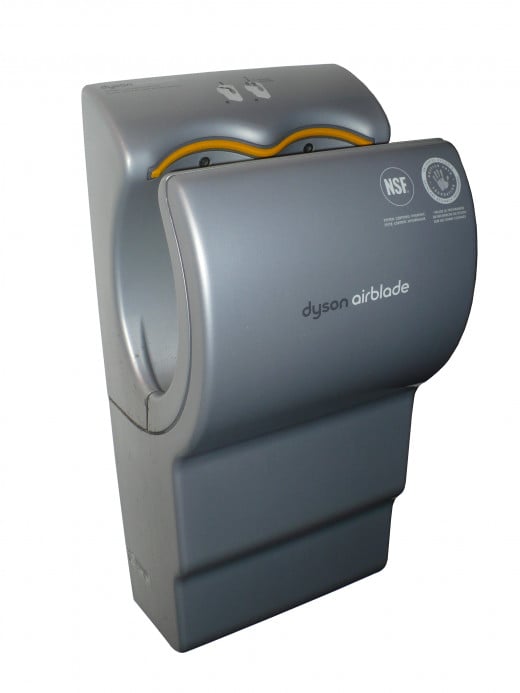
Even if Toilets Are Dirty, What About Sinks and Towels?
Problem: Paper towels were getting more and more rare. The electric blower ones were OK, except that they blew tiny droplets of water from the previous patron up off the floor. Worst of all? The Dyson dryers. You stuck your wet hands inside, and it uses powerful air blasts to quickly dry hands, all the while blowing your germs and everyone else's up in your face.
In 2014, The Telegraph reported that:
"Dyson Airblade hand-driers spread 60 times more germs than standard air dryers, and 1,300 times more than standard paper towels, according to research published in the Journal of Applied Microbiology."
Dyson claimed the study was flawed, and commissioned by paper towel manufactures.
On the other hand, the same article noted that University of Westminster researchers found that “the Dyson drier's 430mph blasts of air are capable of spreading viruses up to 3 meters across a bathroom.The standard drier spread viruses 75cm, and the hand towels 25cm.” I doubt public restrooms will be retrofitted to ensure 3 metres of space between each hand dryer. Paper towels may make a comeback.
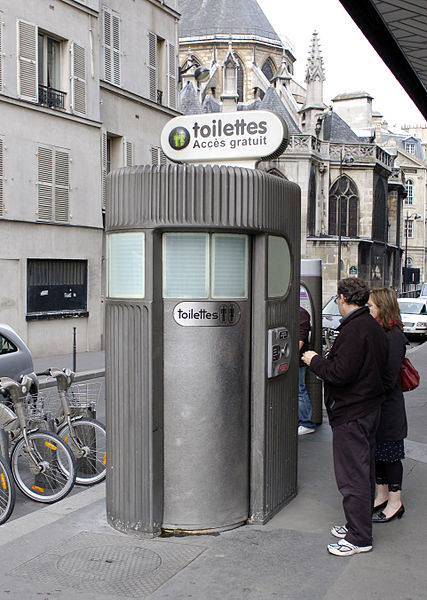
Keeping One's Distance
However, the need for distancing from the hand dryers is probably minimal compared to the need to back away from the toilet and avoid disease.
The Washington Post reported:
“For all our paranoia about the surface of toilet seats — the tissue paper we oh-so-carefully lay down, the thin covers often offered in public stalls — germ transmission from skin contact is a relatively small health risk compared with what happens after you flush. That’s when bits of fecal matter swish around so violently that they can be propelled into the air, become aerosolized and then settle on the surroundings.
“Experts call it the 'toilet plume'.”
So mother was right after all. She loathed all bathrooms except our own, that she had cleaned well and often. I tried to get over that as an adult, and mainly succeeded. Until now, until Covid, when it seems that any ordinary life experience might send you from wherever you are to the local hospital's ventilator-land, a very unpleasant place to be.
The problem, in public toilets, is often one of the equipment itself. While some public rest rooms will have toilets with lids that close, most are open, like the ones on the UK motorways. (It could be worse than in the UK. The toilets on the French motorways are not only unlidded, but unseated, I suppose to make cleaning easier. But if you sit, it will be on cold porcelain and not a butt-friendly plastic seat.)
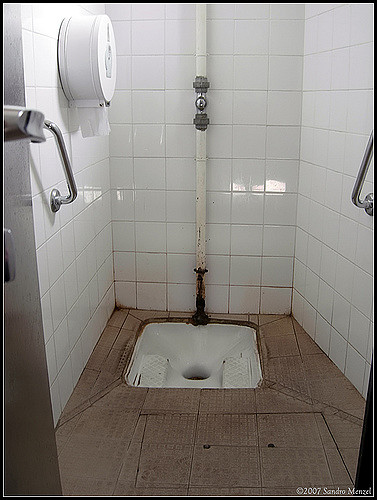

Which Sort of Toilet is Best to Avoid Covid?
Is there a solution? It isn't the squat toilets, of that I am certain. A great many people have trouble finding the place to sit (when drunk, etc.): Imagine trying to target the exact location of dropping when you are hovering like a Sumo preparing to fight, peering between your bent legs for targeting, and often without even a handrail to steady yourself? I've done it, notably in Cyprus. And I would never do it again. I gained absolute proof that most people can only manage to hit the edge of the target hole, or not hit it at all. If the flush is very powerful, “things” might well be sluiced right out of the shallow indentation and around your feet. (I do hope you are not having lunch while reading.....)
The garderobe, then? The medieval practice of creating an overhang on the upper floor of a manor house or castle, putting a hole in the floor and letting the fecal matter drop to a pile below for a serf to remove from time to time. Did I mention it was an uncovered mound?
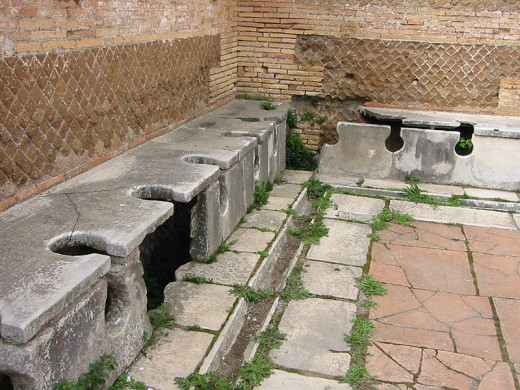
No Distancing Allowed
Actually, the Romans might have had the right idea with their latrines. Except that they were mainly communal, they had something to recommend them: No toilet plume.
Users simply sat on a seat with the appropriate hole and the droppings dropped into a channel that had water constantly running through it to take the material to the sewers and away. (A bit ungreen these days, but with so many fewer people back then, the rivers could probably handle the material without causing cholera....mainly.)
There were two problems, though. First, of course, is that few of us want to do our business in front of (or next to) other people.
The second problem is worse: Wiping was done with a—wait for it—communal sponge. (It was rinsed in water or vinegar, but still.....)
If you don't mind, I'll just be sure I am wearing a mask, after public toilets reopen, and avoid the toilet plume that way as there is no way I'm interested in exchanging the toilet plume for a communal butt wipe.
© 2020 Laura H McBride

